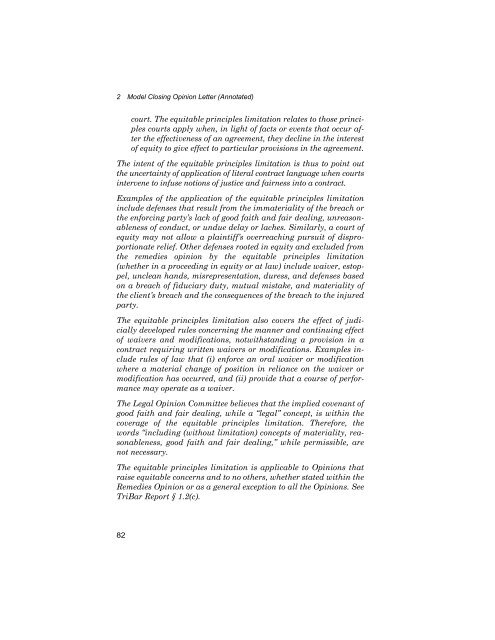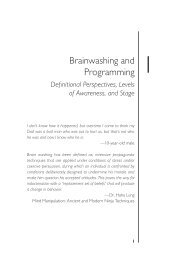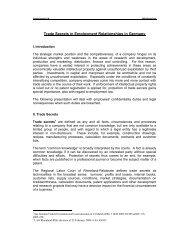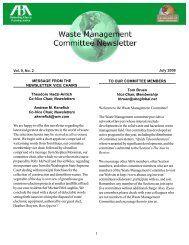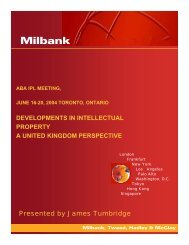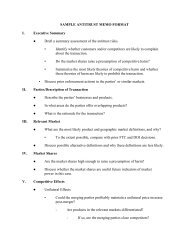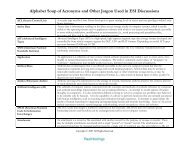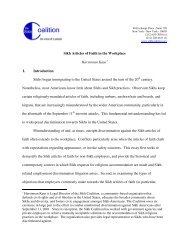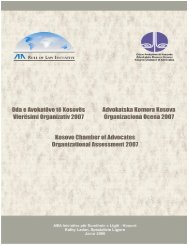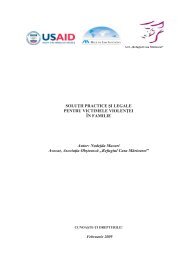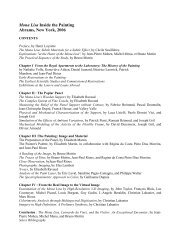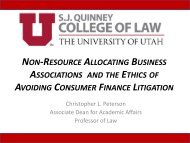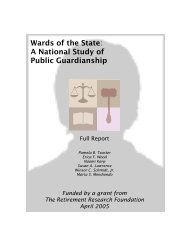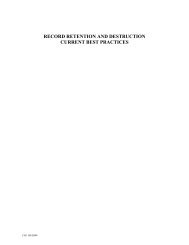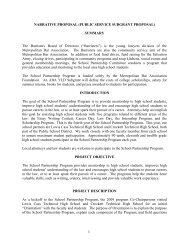Model Closing Opinion Letter (Annotated) - American Bar Association
Model Closing Opinion Letter (Annotated) - American Bar Association
Model Closing Opinion Letter (Annotated) - American Bar Association
Create successful ePaper yourself
Turn your PDF publications into a flip-book with our unique Google optimized e-Paper software.
2 <strong>Model</strong> <strong>Closing</strong> <strong>Opinion</strong> <strong>Letter</strong> (<strong>Annotated</strong>)<br />
82<br />
court. The equitable principles limitation relates to those principles<br />
courts apply when, in light of facts or events that occur after<br />
the effectiveness of an agreement, they decline in the interest<br />
of equity to give effect to particular provisions in the agreement.<br />
The intent of the equitable principles limitation is thus to point out<br />
the uncertainty of application of literal contract language when courts<br />
intervene to infuse notions of justice and fairness into a contract.<br />
Examples of the application of the equitable principles limitation<br />
include defenses that result from the immateriality of the breach or<br />
the enforcing party’s lack of good faith and fair dealing, unreasonableness<br />
of conduct, or undue delay or laches. Similarly, a court of<br />
equity may not allow a plaintiff’s overreaching pursuit of disproportionate<br />
relief. Other defenses rooted in equity and excluded from<br />
the remedies opinion by the equitable principles limitation<br />
(whether in a proceeding in equity or at law) include waiver, estoppel,<br />
unclean hands, misrepresentation, duress, and defenses based<br />
on a breach of fiduciary duty, mutual mistake, and materiality of<br />
the client’s breach and the consequences of the breach to the injured<br />
party.<br />
The equitable principles limitation also covers the effect of judicially<br />
developed rules concerning the manner and continuing effect<br />
of waivers and modifications, notwithstanding a provision in a<br />
contract requiring written waivers or modifications. Examples include<br />
rules of law that (i) enforce an oral waiver or modification<br />
where a material change of position in reliance on the waiver or<br />
modification has occurred, and (ii) provide that a course of performance<br />
may operate as a waiver.<br />
The Legal <strong>Opinion</strong> Committee believes that the implied covenant of<br />
good faith and fair dealing, while a “legal” concept, is within the<br />
coverage of the equitable principles limitation. Therefore, the<br />
words “including (without limitation) concepts of materiality, reasonableness,<br />
good faith and fair dealing,” while permissible, are<br />
not necessary.<br />
The equitable principles limitation is applicable to <strong>Opinion</strong>s that<br />
raise equitable concerns and to no others, whether stated within the<br />
Remedies <strong>Opinion</strong> or as a general exception to all the <strong>Opinion</strong>s. See<br />
Tri<strong>Bar</strong> Report § 1.2(c).


